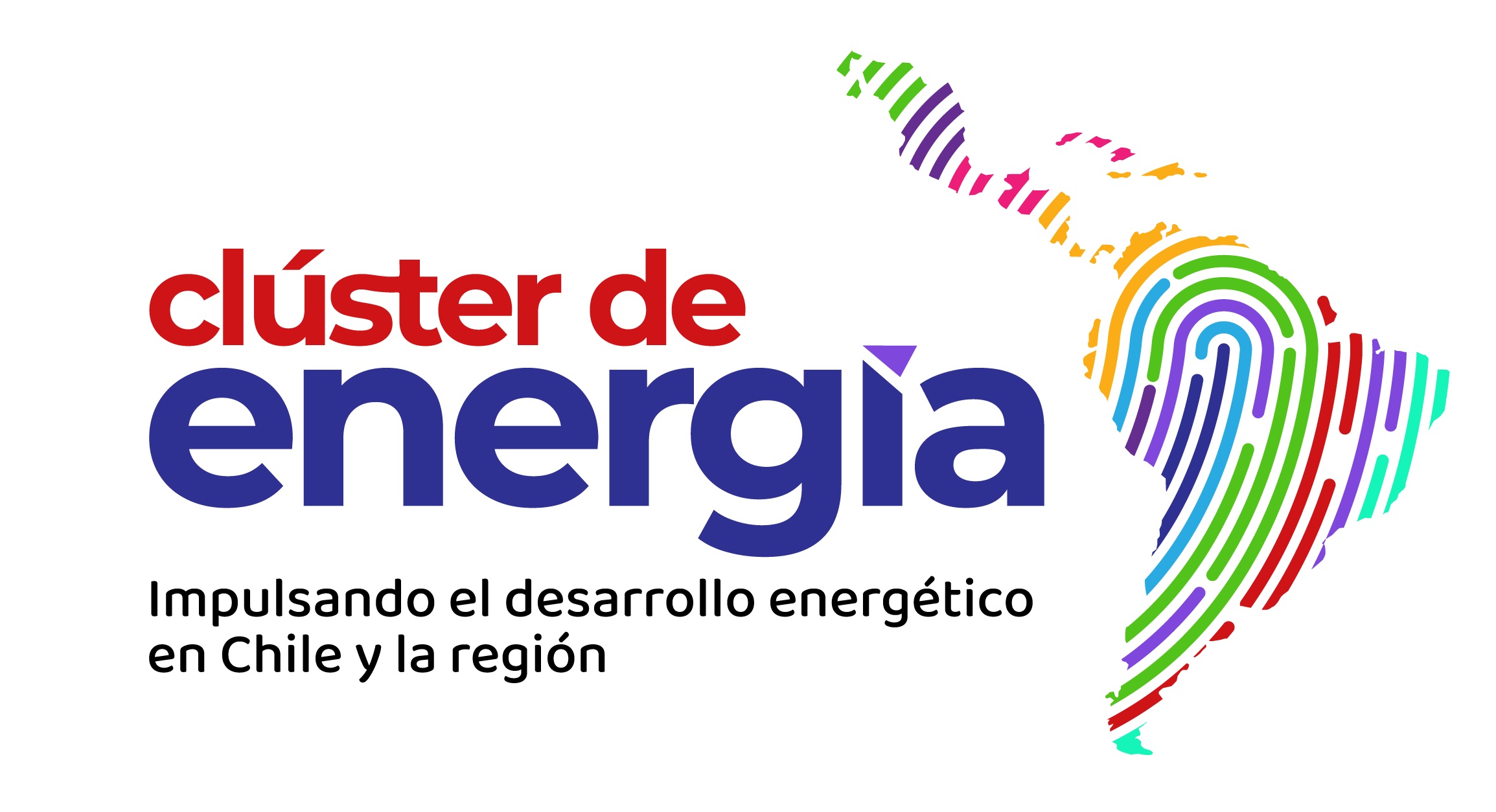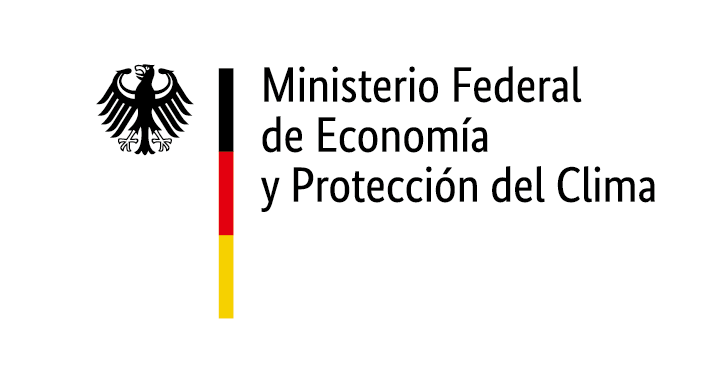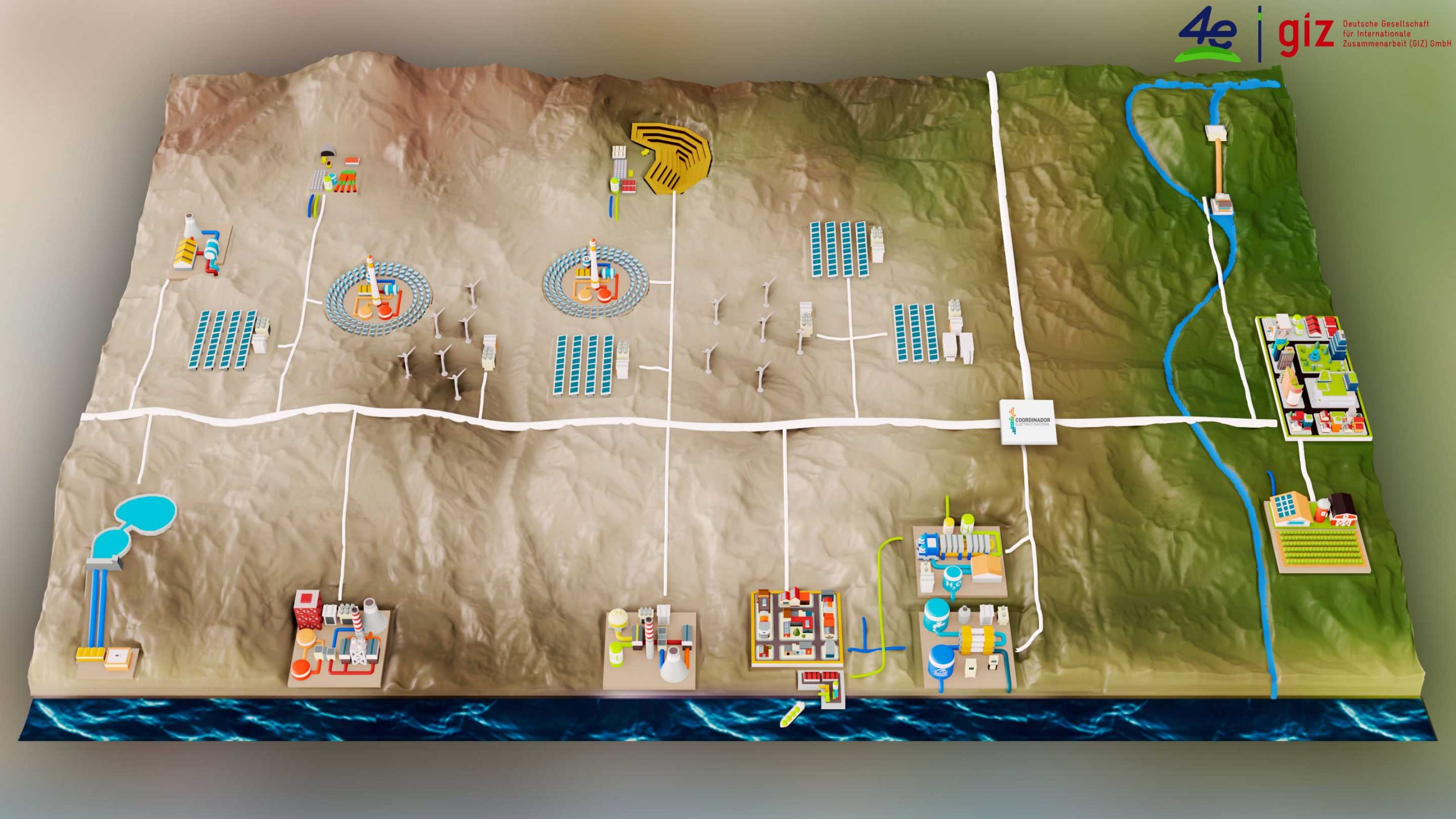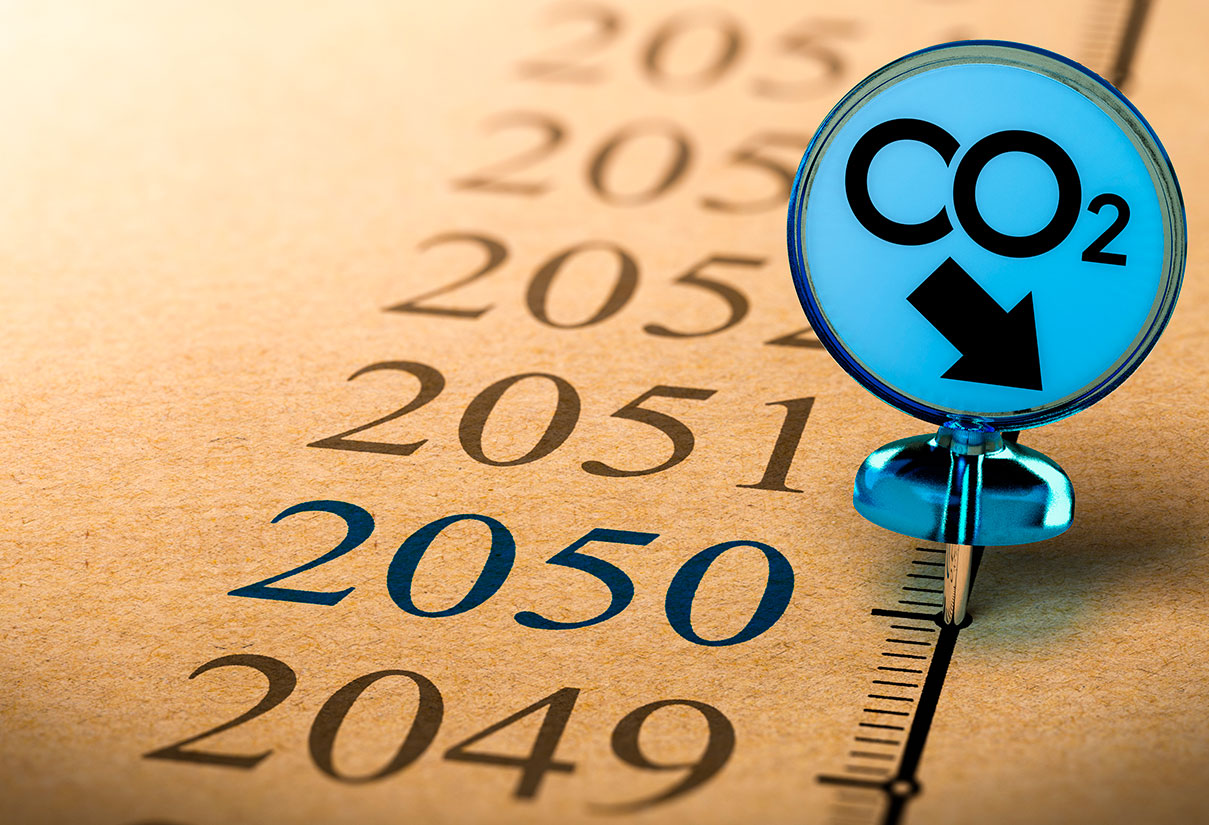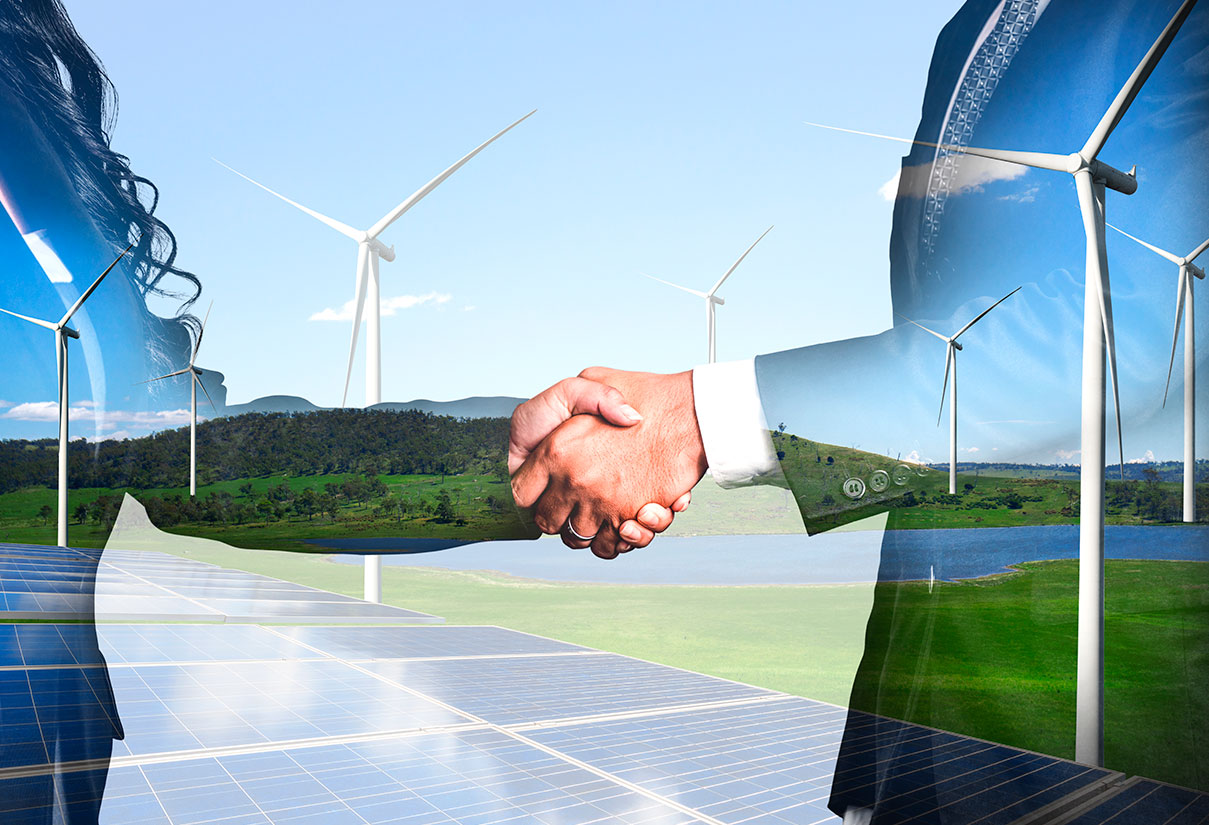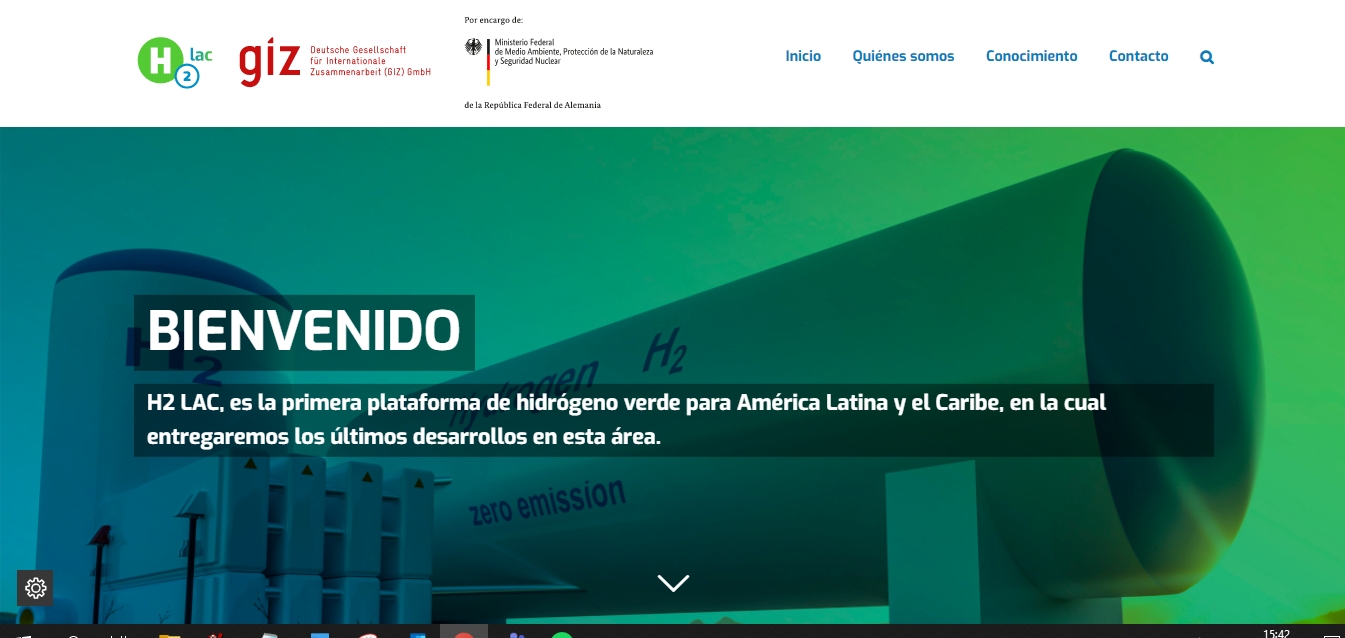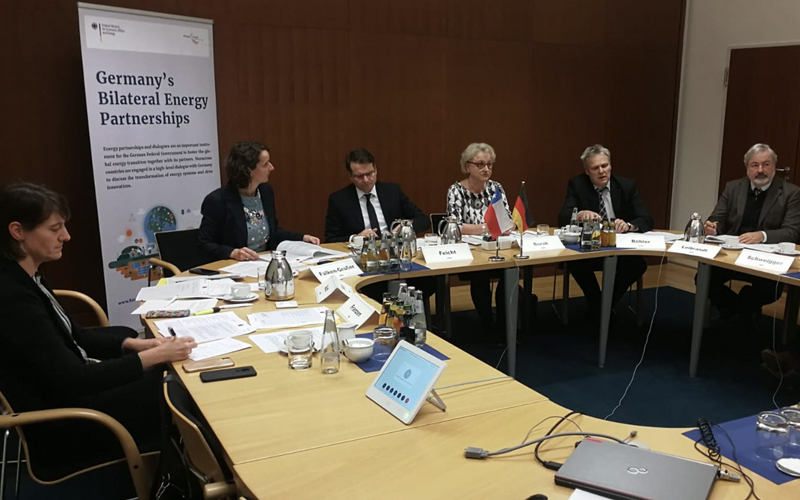Chile’s renewable energy potential as a huge opportunity
GIZ specializes in technical cooperation for sustainable development worldwide. In Chile, the energy sector is responsible for about 78% of the greenhouse gas emissions that cause climate change.
According to a study published in 2014 by the 4e Program, a potential of 1,800 GW in renewable energies was identified for Chile. This potential corresponds to about 75 times the current installed capacity of the country. Also, the Atacama Desert is the best place in the world for solar energy, with a radiation of up to 2,400 kWh/m2, allowing to achieve photovoltaic plant factors of over 45%.
These characteristics make Chile a paradise for renewable energies. Clean energy enables the country to be a regional forerunner in the energy transition. Adding to that, renewables enable Chile to be an energy exporter and develop new green technologies such as green hydrogen, concentrated solar power and pump storage.
